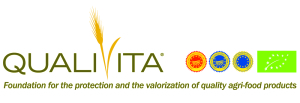The most important challenge that the quality food sector will have to face in the coming years is certainly the digital one. Made in Italy food will become big if, and only if, it will be able to put in place an overall strategic plan in the web. So, the battle moves from the fields to Internet.
In the new digital markets, our excellence products - PDO (Protected Designation of Origin), PGI (Protected Geographical Indication), and Organic - do need structured and coherent strategies in order to protect and promote the whole food market. Considering the value of this domain in Italy, we cannot continue to address this issue in a weak or inconstant way; it is necessary to plan a long-term digital strategy that can be effective on several fronts.
Three priorities must be considered facing the web: the protection of Geographical Indications and of the companies; the enhancement and promotion of these products; the regulation of the dynamics of the e-commerce.
With regard to the protection of this sector, the impression is that the productive capacities of our local excellences are undermined in Internet with a single click. The instance of the PDO Gorgonzola cheese is significant, with the appearance on the virtual shelves of the giant ‘Amazon Fresh’ of similar products to which the same name has been given, without any protection of the intellectual property of this designation of origin.
In the domain of enhancement, too, it is necessary to do much work; the idea of a unique brand of the Made in Italy with a coherent information system and a distribution chain which combines the different quality productions could be an important answer in both commercial and cultural terms. The economic impact of such portals as Tripadvisor and Booking.com on the world of restaurants gives a good idea of a trend which will soon invest the productive food sector.
With the spread of important investments carried out by the giants of Internet, e-commerce is certainly the most complex situation concerning this domain. A good starting point could be the beginning of a consultation with the major players on the distributive policies, so that even small and medium-sized companies can be competitive. The difficulties in this area remark a gap due to the lack of an Italian large-scale retail trade able to be present abroad with large volumes.
In a world as the digital one, which is often unregulated and transnational, it is sure that the operators are proceeding in order to define one of the major drivers for the commercial development of the future of Italian excellences, both in B2C (business to consumer) and B2B (business to business). In order to avoid missing this opportunity, it is necessary to act immediately on the 'digital literacy' for both stakeholders of the food sector and policy-makers, who play a fundamental role in the long-term strategies.
Mauro Rosati
 By means of activities concerning scientific and cultural divulgation, Qualivita is a reference point for all the stakeholders, in both national and international domain for Geographical Indications. Thanks to its activity, it has been recognized by the Italian Ministry of Agriculture, Food and Forestry as a subject characterized by high scientific and technical capacity within the quality food sector and especially in the PDO, PGI, TSG and Organic productions.
By means of activities concerning scientific and cultural divulgation, Qualivita is a reference point for all the stakeholders, in both national and international domain for Geographical Indications. Thanks to its activity, it has been recognized by the Italian Ministry of Agriculture, Food and Forestry as a subject characterized by high scientific and technical capacity within the quality food sector and especially in the PDO, PGI, TSG and Organic productions.

